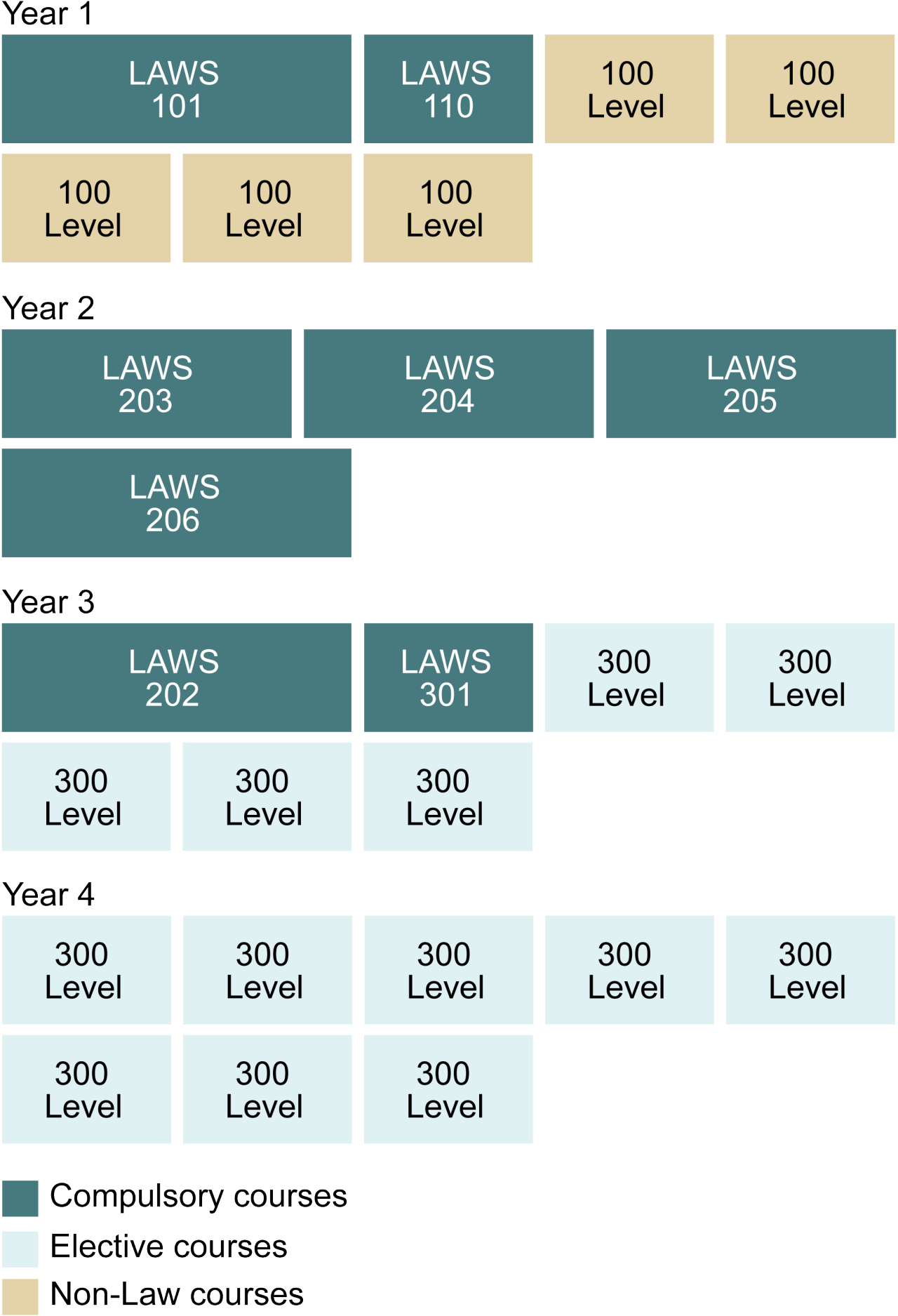Bachelor of Laws
- Degree Structure - Duration
- 4 years full-time

With UC's Bachelor of Laws (LLB) you get to deal with real people and real problems as part of our innovative clinical studies programme. Find out about studying an LLB through our Te Kaupeka Toi Tangata | Faculty of Law.
480
2024 tuition fees estimate per 120 points:
Bachelor of Laws students gain a professional degree of outstanding quality in four years.
You will deal with real people with real problems as part of the innovative clinical studies programme at UC, honing critical practical skills in the process of helping the community.
Admission to UC with University Entrance (or equivalent) is required to enrol.
If English is your additional language, you are also required to meet UC's English language requirements.
See Admission and enrolment for all information on enrolling at UC.
Law studies do not require a background in any specific subject at secondary school, and entry to the first year of the LLB is open to everyone with University Entrance.
You will need to have good reading, writing, and analytical skills. Subjects such as English, drama, economics, te reo Māori, languages, history, and classical studies are useful preparation.
The Bachelor of Laws follows a closely prescribed structure, with courses covering a variety of legal systems in Aotearoa New Zealand and the opportunity to take optional courses in specific areas of legal interest.
See ‘Planning my degree’ below for an example degree structure diagram.
Year 1
Year 2
Entry into the second year of the degree is limited to students that have achieved good grades (normally at least a B) in the two compulsory Law courses from first year.
Year 3
The remaining five courses in this year are made up of elective 300-level LAWS courses, in topics such as international human rights, environmental law, family law, and many others.
Year 4
The final year of the LLB is made up of another eight elective 300-level LAWS courses.
If you are wanting to later be admitted as a Barrister and Solicitor, you will need to include LAWS398 Legal Ethics as one of your options.
UC's postgraduate Law options include:
Find out more about what can you do with a degree from UC.
2024 tuition fees estimate (per 120 points):
2023 tuition fees estimate (per 120 points):
SSL estimate (per 120 points):

Each small block represents a 15-point course. However, some courses may be 30 points or more.
This diagram is an example only – other combinations are possible. For specific course requirements, see the Regulations for the Bachelor of Laws.
The Bachelor of Laws is made up 480 points:
The degree takes 4 years of full-time study, or can be studied part-time for up to 10 years.
For the full degree requirements, see the Regulations for the Bachelor of Laws.
With good grades in the compulsory courses LAWS101 and LAWS110 in your first year (normally at least a B grade), you will be able to advance into the 200-level Law courses, all of which are subject to limited entry.
Completed courses from the LLB can be credited to other degrees eg, the Bachelor of Arts or Bachelor of Criminal Justice, if you are unable to, or choose not to, continue with an LLB.
If you achieve a satisfactory standard in your first two years of study for the Bachelor of Laws, you may be invited to enter the honours programme. If you meet the criteria, you will enrol in three additional Law courses in fourth year:
See the Regulations for the Bachelor of Laws with Honours for more information.
It is possible to study a Bachelor of Laws alongside other degrees at the same time, such as the Bachelor of Criminal Justice or Bachelor of Commerce.
Find out more information about Double degrees.